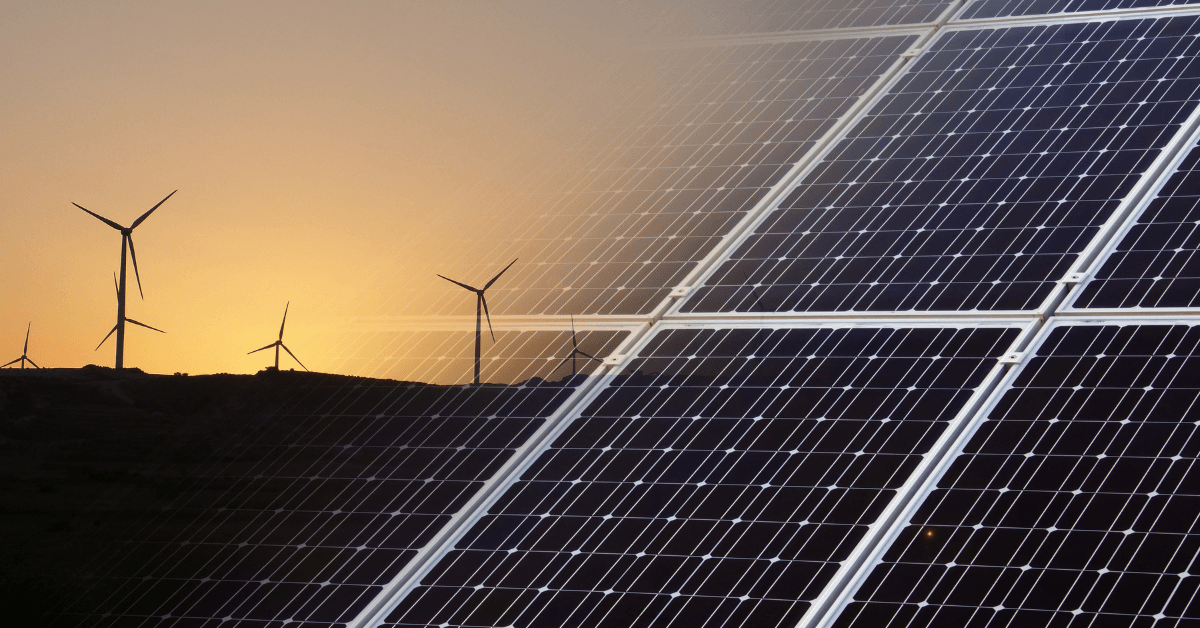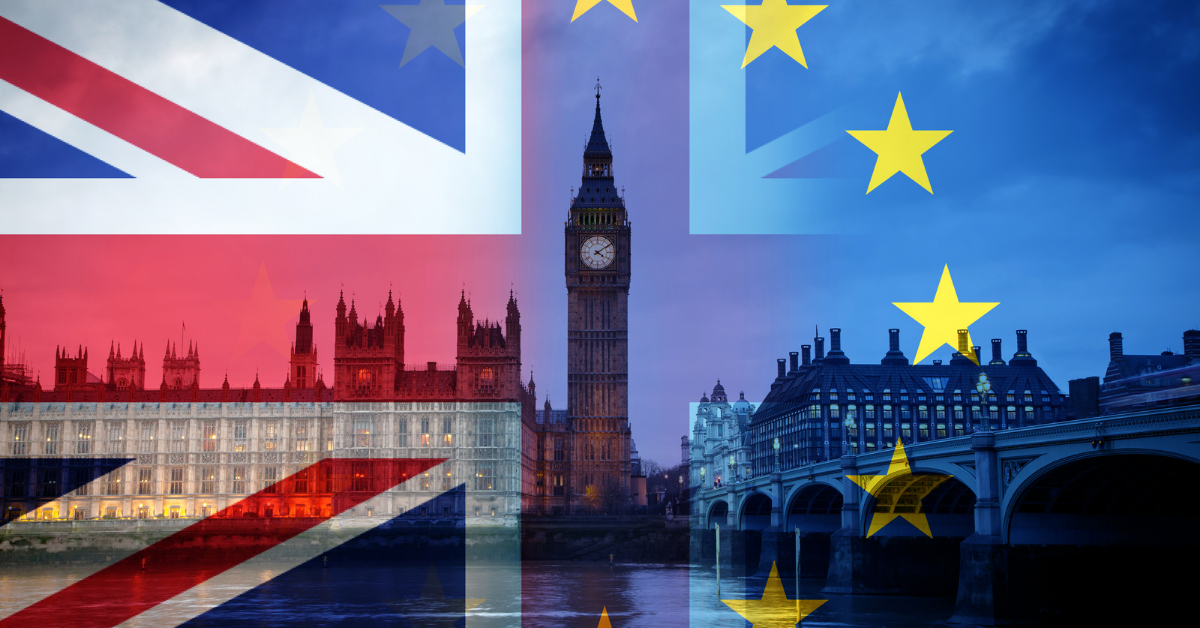Energy Price Forecast 2021: Covid-19, Brexit and much more
Since our last energy price forecast, the world has been afflicted with a global pandemic that has had serious impacts on all areas of the energy industry and the global economy. Here is our energy price forecast for 2021.
The impacts of Covid-19

There’s no denying that the Covid-19 pandemic will continue to be the major issue of 2021. The UK government and energy regulator Ofgemhas announced a swathe of measures to help the most vulnerable of consumers and support for energy suppliers.
Energy suppliers will be under intense scrutiny from the regulator and consumers alike over how they have handled the pandemic. Those companies that have provided support and maintained a good customer service throughout are likely to benefit some positive publicity and potentially gain new consumers as a result.
The adoption of new technology and ensuring that their current systems are capable of handling the issues raised by the lockdown is also a major challenge that will likely continue into 2021. The possibility of extensions to the current lockdown or the introduction of new lockdowns in the event of a virus flare-up will need to be considered.
On the energy price front, several industry experts are forecasting that wholesale energy prices will continue to be under pressure due to the ongoing uncertainty and fall in demand created by the pandemic.
Some experts think there could be an 8% decline in overall energy demand up to 2050 as the structural changes caused by Covid-19 impact consumption.
*update 23/11/2020
Covid-19 deaths reached 1.3 million globally and 55,024 in the UK. The UK's second lockdown is due to end on December 2nd but more lockdowns could occur early 2021.
*update 02/12/2020
The UK has become the first country in the world to approve a Covid-19 vaccine. The Pfizer/BioNTech vaccine has been approved for widespread use raising hopes that the lockdowns and restrictions imposed by the government will come to an end early in 2021.
*update 29/12/2020
A new reportedly more transmissible strain of the Covid-19 virus has been discovered in the UK. Thought to have originated in South Africa this new strain, according to the government has led to a rise in cases and put hospitals in the south of the country under increased pressure. Most of the country is now under tougher Covid restrictions and it is looking likely we could see another full national lockdown over the coming days and weeks.
Also read: The Post Covid-19 Energy Forecast: What comes next?
*update 05/01/2021
The UK is back under strict lockdown measures due to a surge in Covid-19 infections. Consumers and energy suppliers are expected to come under more pressure over the coming months with the end of the lockdown not expected until March at the earliest.
*update 16/07/2021
So much for flattening the curve in a matter of weeks! The Covid-19 restrictions may have been lifted on July 19th ( a month later than first announced) but the UK is still struggling with their effects. The latest being branded the pingdemic, which has seen thousands of people forced to self isolate after the NHS app told them too. Some energy suppliers have been impacted with staff levels down due to this latest crisis.
More changes to the energy mix
The record lows in energy usage and price drops recorded during the lockdowns are also likely to further impact the electricity generation mix.
In the energy market, suppliers that can offer cheaper prices can often sell more of it. Currently, the cheapest options for electricity generation with the lowest operational costs are wind and solar energy.
In 2020, the UK broke new records for the number of days it went without firing up coal power stations as well as smashed new records for the contribution wind energy made to the energy mix.
In 2021, we can expect more investment into wind power in the UK with Prime Minister Boris Johnson pledging to make the country the ‘Saudi Arabia’ of wind.
At the height of the first lockdown, the energy mix shifted to renewable sources, a trend which is set to continue. However, a push for economic recovery following the devastating economic impacts of the pandemic could see nations turn back to fossil fuels to power an economic recovery.
Also read: UK Energy Mix – The Types of production
Update 23/11/2020 -
The UK government has announced that its Green Homes Grant scheme will be extended by 12 months to assist more homeowners improve the energy efficiency of their homes. Prime Minister Boris Johnson has also unveiled his 10 point plan for a Green Industrial Revolution. Next year may see Energy suppliers be told that they may be in put in charge of a heat pump rollout scheme in a similar vain to the current smart meter rollout.
Update 29/12/2020 -
The government released its 10 point plan earlier in the month with one of the biggest changes for energy suppliers set to be plans to introduce automatic tariff switching processes. For more information click here
Update 05/1/2020 -
Wind power broke new records over the festive period thanks to Storm Bella causing wind to generate over half of the country's energy needs.. New wind farms have also come online with the Dogger Bank wind farm being the latest.
Also read: Wind Energy breaks new record and the link between Fishing and Energy in the Brexit Trade deal
Update 03/02/2021-
According to new data the UK’s renewable electricity outpaced its fossil fuel generation for the first time in 2020 and could remain the largest source of electricity in the future. Despite this National Grid has issued several warnings over capacity as a combination of cold weather and poor wind conditions put strains on available supplies.
Update 26/07/2021 -
The government has announced new measures to support the drive to Netzero by 2050. One of these is a highly controversial idea to impose a new surcharge on consumer electricity bills to help pay for the huge changes required.
Also read: Green Energy Suppliers object the prospect of adding a surcharge to household energy bills
The impact of the Ofgem Price Cap
It was announced in October 2020 that the energy price cap has been extended until the end of 2021 in an attempt to help consumers struggling with the impact of the Coronavirus pay their energy bills.
The impacts of the pandemic have been severe with many consumers struggling to pay their energy bills or requesting payment holidays from their energy supplier.
Energy suppliers have raised concerns over the rising cases of bad debt and with the extended furlough scheme due to end in March the unemployment rate is likely to rise yet again.
Previously, Ofgem said that the price cap will remain at £1,042 throughout 2021, an £84 drop from the previous price cap of £1,126, however due to the challenges created by the pandemic it has opted to raise the price cap from April 1st 2021.
Update 23/11/2020 - Ofgem has opened a consultation on whether to increase the energy price cap in an effort to support energy suppliers.
Read more:
Ofgem considering Energy Bill hike to help ease pressure on Energy Suppliers
Update 03/02/2021 - Ofgem has made the decision to raise the default tariff energy price cap by £23.69 from April 1st in an attempt to support energy supply companies with rising bad debts created by the ongoing Covid-19 pandemic. Read more: Ofgem to adjust default tariff price cap by £23.69 to help energy suppliers tackle bad debt
Update 05/02/2021 - The energy regulator Ofgem has announced that the energy price cap will increase to pre-pandemic levels due to rising wholesale energy prices. The new price cap from 1 April 2021 will rise by £96 taking the total to £1,138. Read more: Ofgem Hikes Energy Price Cap raising Energy Bills to pre-pandemic levels
Update 26/07/2021 - The government has announced that the energy price cap will be extended until 2023, a move that took many in the industry by surprise and one that is sure to disappoint energy suppliers who were looking forward to seeing the back of price capping.
New Ofgem rules
Ofgem introduced new rules for energy suppliers in the latter months of 2020 and they will be enforced in 2021.
The new rules require energy suppliers to offer emergency credit to their customers who are struggling to top up their prepayment meters. Suppliers must also offer customers who are in debt with a realistic and sustainable repayment plan.
The cost of implementing such rules could be passed onto consumers in higher energy bills but this is likely to be frowned upon by the energy regulator.
Also read: Ofgem to introduce new rules to help customers struggling with energy bills
Update: 02/12/2020 - Ofgem has finalised its plans to modify its electricity and gas licensing requirements. The new requirements will come into force from January 22, 2021, the new Customer Supply Continuity Plans requirement will take effect from 18 March 2021. Read more: Ofgem to modify electricity and gas licenses in an attempt to improve standards among energy suppliers
The impact of Brexit on energy prices
Brexit’s impact on energy prices is dependant on whether a trade deal is agreed between the UK and the European Union.
In the event of a deal, we can expect to see little disruption in energy prices as the UK will most likely agree to stick to the current EU structures and rules on energy.
A No-Deal could create some short term volatility in energy prices and is sure to create some political headaches for the government but in the long run, it will be down to the UK energy sector to ensure that prices and supply are not disrupted.
The flow of gas and electricity from the continent is unlikely to be impacted too much due to the pipelines being a privately owned system that delivers to bot EU members and non-EU member nations.
Also read: Deal or no deal, what will the implications be for the UK Energy sector?
Update 29/12/2020-
A Brexit deal was agreed between UK and EU negotiators. There will also be an end to freedom of movement and the reintroduction of temporary visas for work-related purposes. Some sectors, including energy, are subject to future regulatory decisions, adding to uncertainty. The EU has approved the deal whilst the British Parliament is expected to approve it too.
Update 03/02/2021 -
With the election of Joe Biden to the office of US President it remains to be seen what stance he will take on the various challenges faced by the western world. Iran has already announced that it would increase its uranium production despite analysts warning that the nation could have enough material for a nuclear weapon within weeks.
North Korea has also quickly gone back on the headway made by President Donald Trump during his tenure and more foes of the US are likely to push their luck to test the will of the new President.
Update 26/07/2021 -
Wholesale energy prices have soared following the easing of the Covid-19 lockdowns. High demand for gas and electricity has resulted in many energy suppliers being caught out by the surge with some in the industry warning that we could see a spate of energy supply businesses going bust in October when it comes to them having to pay their renewables obligations.
Geopolitics and global conflicts
Oil prices are set to remain below pre Covid-19 levels throughout 2021 as the recovery from the pandemic has been worse than expected.
Concerns over more waves of the virus and regular lockdowns in affected countries have put a dampener on the commodities price. Economists had been expecting a strong economic rally after the first lockdown, but the second wave and potential for new waves have seen the recovery come in below forecasts.
On the geopolitical sides of things, the big point of tension is the growing animosity between China and much of the world. Throughout 2020 there were several border clashes between Chinese and Indian forces and tensions over Taiwan have escalated.
The result of the US election will be definitively settled by 2021 so it will depend on who takes the White House on what the policy towards China will be. Joe Biden is likely to ease tensions with the Chinese Communist Party whereas Donald Trump will continue his policy of trying to keep Chinese influence contained.
The Chinese issue is likely to be the dominant focus geopolitically throughout 2021.
Further Reading
How to start an Energy Company
6 Reasons why consumers switch energy suppliers
Energy Supplier CRM & Energy Billing system
Dyball Associates are proud to help new supply businesses successfully launch in the UK market.
Through our energy market consultancy services, and the software we’ve developed, we’re supporting new UK electricity and gas suppliers get set up and start supplying.
For more information on how to start and manage an energy company, get in touch with Dyball Associates today.








